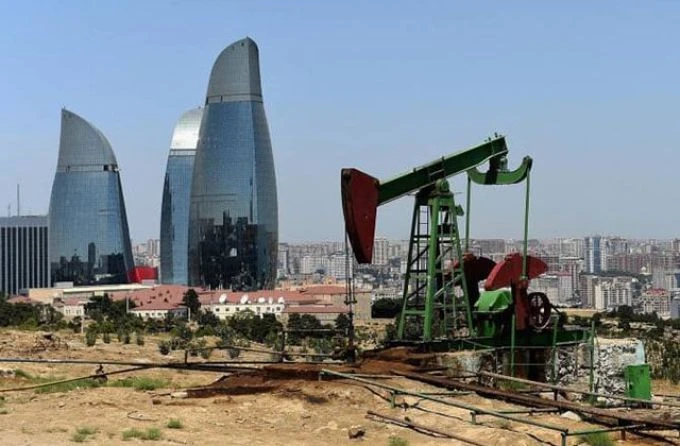Geghard "Analytical. The President of the State Customs Committee of Azerbaijan announced on February 13, 2025 that reforms to combat tax evasion are promoted to modernize the Azerbaijani tax system and its integration into the world economy. According to Shahin Bagirov, significant steps have been taken to prevent the shadow economy, legalize economic activities and income, as the shadow economy is a serious threat to Azerbaijan's economic security.
In fact, Sh. Bagirov admitted that this problem has not disappeared since the 1990s. Many international organizations have been ignored. The "instruction-promise" of the President's 2021 has failed, according to which the shadow economy will be minimized in Azerbaijan. "Azerbaijan 2030. In the national priorities of socio-economic development, Ilham Aliyev considered it important to attract foreign direct investment in strategic areas.
The shadow economy is unique to all countries of the world, and the shadow economy of the world's gross domestic (GDP) is estimated at 21-23% (with a reduction in the decrease). However, if in developed countries (GDP) it varies normally within 15-16%, then exceeds even 50% in developing countries. In the case of Azerbaijan, it is different, official statistics are either lacking or radically different from the data presented by individual reports, research and specialists.
According to contradictory data, the shadow economy in Azerbaijan is 30 to 47.8% of GDP. Although certain differences are explained by the peculiarities of calculation methodologies, the country is one of the most low quality "extremely Poor Quality." It is believed that the agricultural sector has a significant impact on high indicators, where the large number of unregistered employees provide about 25-27% of the shadow economy (by 2020-2023. Results). Among the non-oil sectors, retail and wholesale trade and, especially public food, are also distinguished by the shadow economy. This explains the lack of foreign investments in the mentioned spheres.
Although Azeri officials are very enthusiastic about the success of the shadow economy in the labor market, they acknowledge that most employees, 2/3 of the labor market continue to work unregistered. The budget system deprives the "envelope" scheme of tax revenues, reducing the revenues of the State Social Protection Fund.
The volume of the shadow economy is also high in infrastructure, banking, real estate, non-oil mining and other areas.
The changes in the enterprises belonging to the members of the ruling administration members and their management in the state bodies and infrastructure are purely formal. If in non-oil areas, it is possible to show certain results through tax reforms to influence the reports of international organizations and improve the country's rating, the data on the oil sphere are inviolable.
Foreign organizations have repeatedly stated that Azerbaijan, especially due to the oil industry, has become a major energy player, but it has not been used to raise the living standards of the country, but has been used to reconstruct the army, aggressive policy and the expansion of family funds for its neighbors. It was also emphasized that poverty and corruption continue to shade the real indicators of the country's development, as instead of reducing the level of corruption and the reduction of the shadow reduction, the Azerbaijani government continues to have pressure on human rights activists and journalists, also endangering democracy.
Local and foreign experts have repeatedly referred to the shadow and corruption manifestations in the Azerbaijani economy. Human rights activist Gubad Bayramov Ibadoglu has done a lot of work in Azerbaijan. The latter was arrested and deported for his activities. According to human rights activists, the transitional economies of post-Soviet countries have maintained one of the negative features of the Soviet Union's economy, the informal part. According to Ibadoglu, the economy of Azerbaijan largely depends on one resource, oil, where the system is hampered by the development of the non-oil economy. The volume of Azerbaijan's shadow economy fluctued in the 2000s and in the 2010s at 60-80%.
Data on foreign organizations have long been known for their monopoly positions in the "Secret" sphere of the Aliyev family and their relatives.
In 2017, the authorized accredited Accountants Association published a study dedicated to the development and forecast of the development and development of the global shadow economy. According to the results of the results of corruption, the number of countries surveying the GDP growth, Azerbaijan has taken the highest place. It turned out that in 2016 the volume of the shadow economy in Azerbaijan amounted to 67.4% of the country's GDP.
It should be noted that local deputies and other officials have often been released on the real extent of the shadow economy in Azerbaijan, confirming that official data does not always reflect the real picture.
The topic has even been included in the research programs of Turkish and Russian higher education institutions, to analyze the peculiarities of the shadow economy through student works in Azerbaijan.
In fact, expert research, reports and statistics of international organizations, the testimonies of repressed human rights activists and the records of Azerbaijani officials say that Azerbaijan ranks "leading" in the world in the world. The issue is due not to systemic shortcomings, but by the need to service the interests of a family with a "corruption monopoly" in Azerbaijan.


